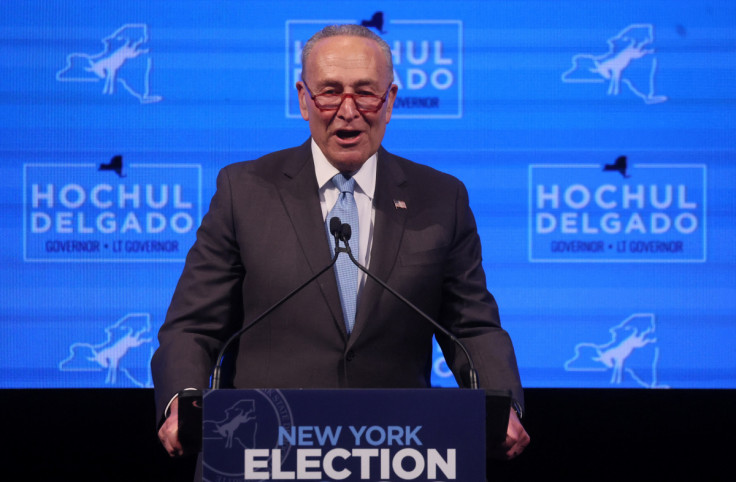U.S. Congress Could Punt Funding Bill Into 2023, McConnell Says

The U.S. Congress may be forced to delay until early 2023 final agreement on funding the government through the end of its fiscal year, instead relying on a stopgap measure to keep the lights on, the top Senate Republican said on Tuesday.
The federal government is currently set to run out of money on Dec. 16 without a vote on either an "omnibus" bill funding the government through Sept. 30, 2023, or a short-term bill known as a "continuing resolution."
"We're running out of time, and that may end up being the only option left that we could agree to pursue," McConnell told reporters a day after meeting his Democratic counterpart Chuck Schumer to discuss a comprehensive omnibus package.
"We don't have agreements to do virtually anything," McConnell said. "We don't even have an overall agreement on how much we want to spend."
An omnibus bill would be expected to exceed the $1.5 trillion funding package that Congress approved last March. Senator Richard Shelby, the top Republican appropriator said the two sides were about $25 billion apart, which he described as "pretty close."
Schumer acknowledged that there was still "a lot of negotiating left to do" to get an omnibus bill.
"Leader McConnell and I have agreed to try and work together to make sure we get a year-long omnibus funding bill done. We hope it can be done this year," Schumer told reporters.
Schumer and McConnell had said an omnibus was vital for national security. A continuing resolution, or CR, would force the military to operate under funding levels of the last fiscal year.
McConnell's comments followed early criticism from Kevin McCarthy, the Republican leader in the House of Representatives, which Republicans are due to take control in January after winning a slim margin in last month's midterm elections.
"Any Republican who's out there trying to work with them is wrong," McCarthy told Fox News in a late Monday interview. "Wait 'til we're in charge," he said.
It was not clear whether McConnell was acceding to McCarthy's demand. The Senate leader told reporters he was "dealing with the practical situation."
Federal agencies have been shuttered 10 times since 1981. The longest, under former President Donald Trump, lasted 35 days and forced about 800,000 workers to be furloughed or to work without pay.
By backing a short-term resolution, McConnell could help boost McCarthy's hopes of becoming House speaker next year over opposition from hardline conservatives, who are threatening to block his path to the top post.
Earlier on Tuesday, Republican conservative Representative Andy Biggs announced that he would stand for the job against McCarthy when the next Congress convenes on Jan. 3.
© Copyright Thomson Reuters 2024. All rights reserved.





















